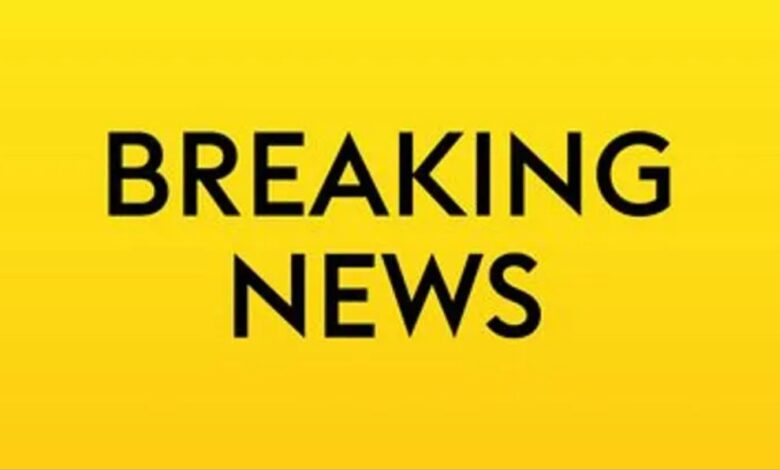Sport
The Two Teams Michael Oliver Cannot Officiate – He Has Never Been a Referee for Either of These Clubs’ Fixtures

Referee Michael Oliver has once again become the center of controversy following his decision to send off Arsenal’s Myles Lewis-Skelly during their clash with Wolves. The young left-back received a straight red card just before halftime at Molineux, a decision that has sparked outrage among Arsenal fans.
The incident occurred when Lewis-Skelly brought down Wolves’ Matt Doherty in a challenge that Oliver deemed serious foul play. Without hesitation, the referee reached for the red card, reducing Mikel Arteta’s side to ten men. Arsenal fans have since accused Oliver of bias, pointing out that he has a history of issuing more cards to their team compared to others.
Adding fuel to the controversy, a staggering statistic has emerged—Michael Oliver has never sent off a Manchester City player. This revelation has only intensified Arsenal supporters’ belief that Oliver may have an unfair approach toward their club while being lenient with others.
However, what many fans may not know is that Oliver is officially restricted from officiating matches involving two English clubs. The reason? His deep ties to a specific region in England make it impossible for him to remain neutral when these teams are involved.
Born in Ashington, Northumberland, Oliver’s rise to becoming one of the Premier League’s top referees started at just 14 years old. His rapid ascent saw him join the National List of Referees in 2007, and by 2010, he became the youngest-ever Premier League referee at the age of 25.
But despite his success, Oliver is strictly prohibited from officiating Newcastle United and Sunderland matches. Due to his roots in the northeast, the Premier League and PGMOL enforce rules preventing referees from officiating games involving clubs they have a personal connection with.
“We have to declare if we have an allegiance to any club or if a family member works at a club. You can’t do any match involving that team, and I can’t do Sunderland, either, for obvious reasons,” Oliver once explained. His comments, originally reported by Express, highlight the rigorous process referees undergo to ensure fairness.
Keith Hackett, a former chief of PGMOL, provided further insight: “At the beginning of every season, the referees’ background information is audited. They complete a form detailing which team they support, whether they’ve played the game, and where they reside. This ensures that no conflicts of interest arise when appointing referees for matches.”
Despite these regulations, Oliver’s recent decision against Arsenal has once again placed him under scrutiny. Many Gunners fans believe the call to dismiss Lewis-Skelly was harsh and inconsistent with decisions made in similar situations.
Social media erupted with criticism following the match, with many accusing Oliver of showing favoritism. Some posts even escalated to the point where police had to intervene due to threats directed at the referee.
However, PGMOL has backed Oliver’s decision, stating that the challenge was both late and high, meeting the criteria for a red card. As a result, the governing body is not expected to take any action against the referee, and Lewis-Skelly’s suspension will likely stand.
While Arsenal supporters continue to voice their frustrations, the debate over Oliver’s officiating remains a hot topic in English football. His history with the club and the latest controversy have only deepened the divide between him and the Gunners’ fanbase.
Despite the criticisms, Oliver’s position as one of the Premier League’s leading referees remains intact. His ability to handle high-profile matches is well-regarded, though incidents like these raise concerns about consistency in officiating.
For now, Arsenal will have to accept the decision and move forward. With crucial fixtures ahead, they can’t afford to dwell on the past—though the debate surrounding Oliver’s refereeing record is unlikely to disappear anytime soon.
One thing is certain: whenever Michael Oliver steps onto the pitch, controversy is never far behind.

 Sport10 months ago
Sport10 months ago“I’m not trying to criticize Ancelotti, but I’m not happy with him for benching that player”: Bellingham Expresses Frustration Over Ancelotti’s Tactical Decision

 Sport11 months ago
Sport11 months agoBREAKING: Manchester City vs Liverpool Clash Cancelled! Title Race Takes a Twist

 Sport10 months ago
Sport10 months agoArsenal Poised for January Swoop on €70 Million Star Dusan Vlahovic

 Sport10 months ago
Sport10 months agoWHAT ON GOD’S GREEN EARTH DID WE JUST SEE?!

 Sport10 months ago
Sport10 months agoReal Madrid: Carlo Ancelotti’s Surprising Revelations About an Unexpected Quality of Vinicius

 Sport10 months ago
Sport10 months agoBREAKING: Arsenal’s Champions League Quarterfinal Opponent Revealed After Monaco’s Dramatic Win – Tough Challenges Await Arteta’s Men

 Sport10 months ago
Sport10 months agoChelsea Players Facing Suspension as Yellow Cards Mount

 Sport10 months ago
Sport10 months agoKey Arsenal Player Set for Return as Gunners Face Struggling Everton
















